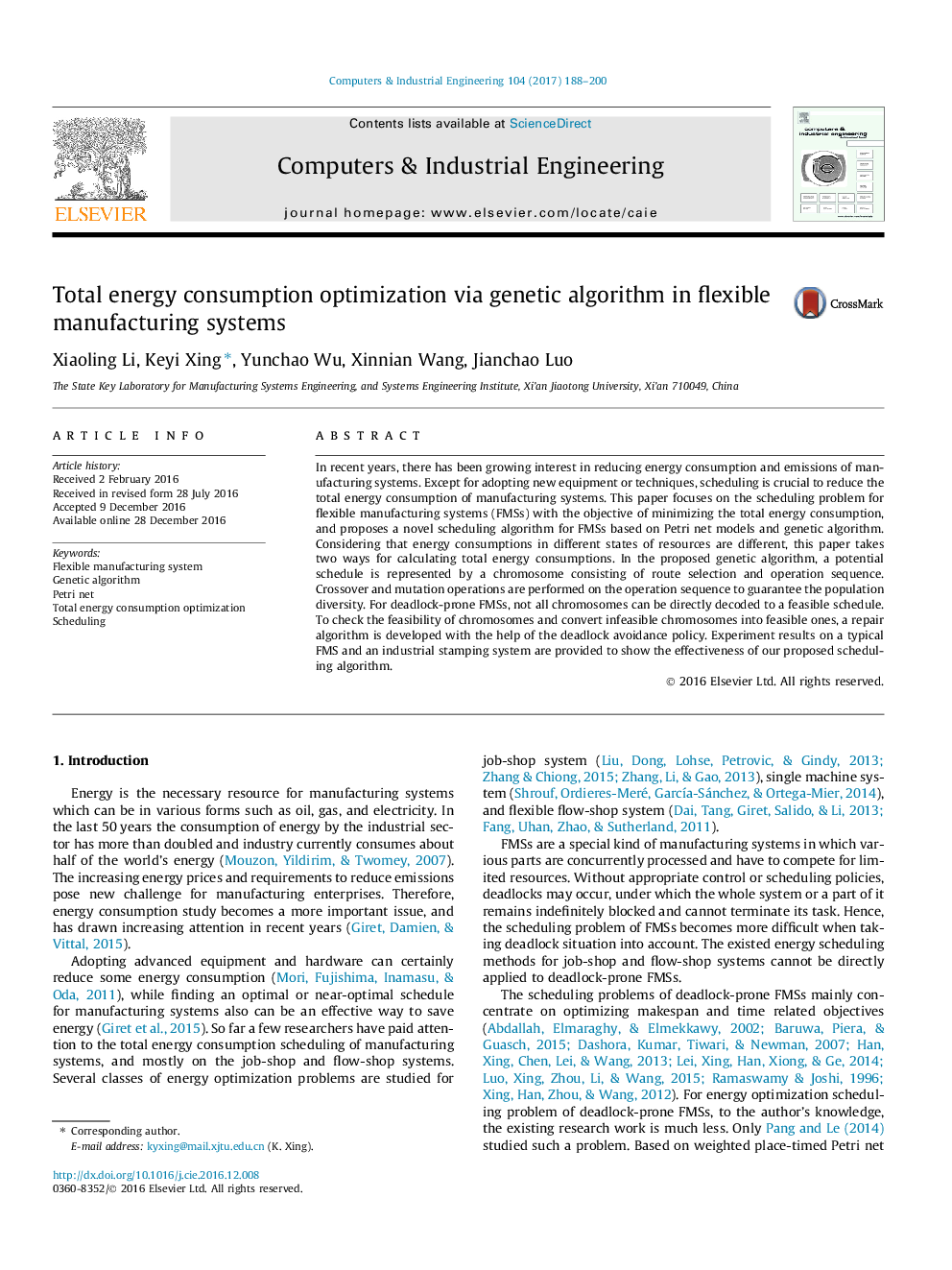| Article ID | Journal | Published Year | Pages | File Type |
|---|---|---|---|---|
| 5127752 | Computers & Industrial Engineering | 2017 | 13 Pages |
â¢Take total energy consumption of flexible manufacturing systems as an objective.â¢Consider two ways of dividing resources states.â¢Two energy consumption functions are proposed.â¢Deadlock situation is avoided by adopting an optimal deadlock avoidance policy.â¢Experiments on a typical FMS and an industrial stamping system are provided.
In recent years, there has been growing interest in reducing energy consumption and emissions of manufacturing systems. Except for adopting new equipment or techniques, scheduling is crucial to reduce the total energy consumption of manufacturing systems. This paper focuses on the scheduling problem for flexible manufacturing systems (FMSs) with the objective of minimizing the total energy consumption, and proposes a novel scheduling algorithm for FMSs based on Petri net models and genetic algorithm. Considering that energy consumptions in different states of resources are different, this paper takes two ways for calculating total energy consumptions. In the proposed genetic algorithm, a potential schedule is represented by a chromosome consisting of route selection and operation sequence. Crossover and mutation operations are performed on the operation sequence to guarantee the population diversity. For deadlock-prone FMSs, not all chromosomes can be directly decoded to a feasible schedule. To check the feasibility of chromosomes and convert infeasible chromosomes into feasible ones, a repair algorithm is developed with the help of the deadlock avoidance policy. Experiment results on a typical FMS and an industrial stamping system are provided to show the effectiveness of our proposed scheduling algorithm.
